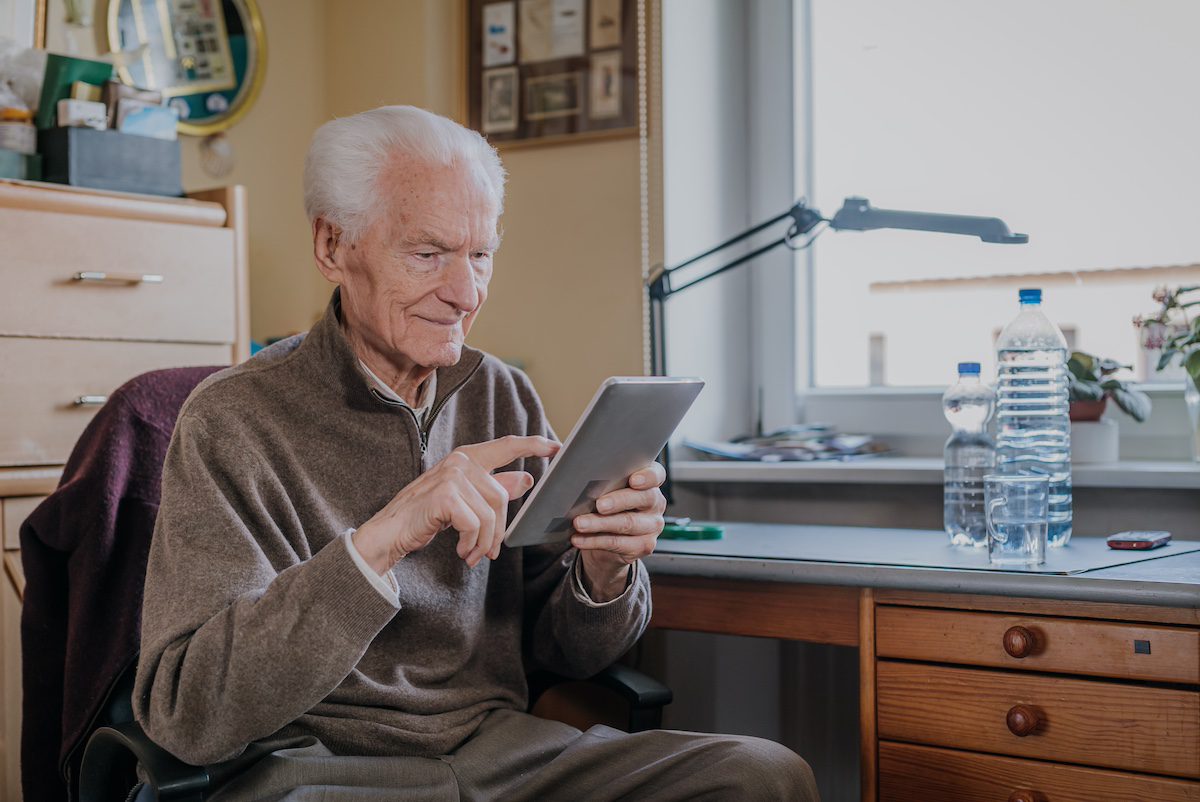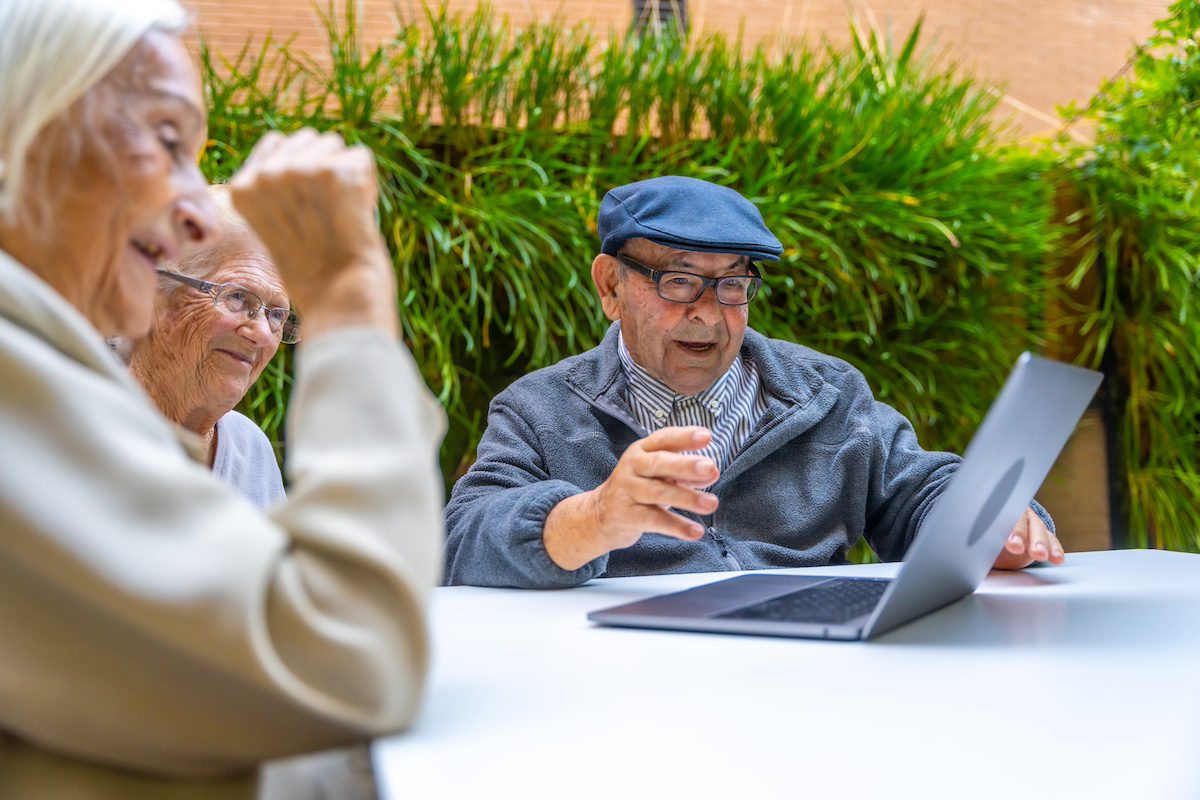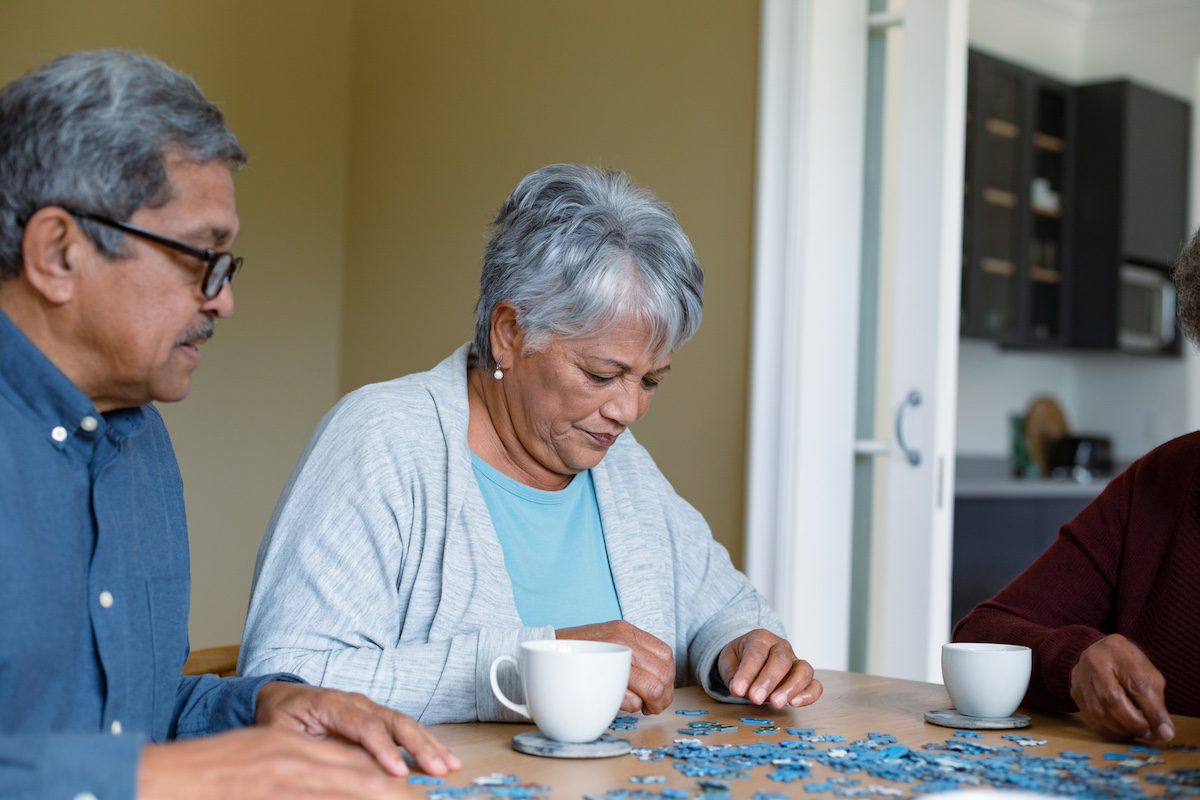When it comes to helping your elderly parent live alone longer and be safer, there are several key tips that can help make the process easier. It is important to take steps to mitigate risk and create a safe environment for your parent.
In this blog post, we will discuss the following tips to help your elderly parent live longer and safer as well as when it is time to consider hospice care or a home health care professional.
1. Assess Their Home for Potential Safety Issues
First and foremost, it is essential to assess the home for any potential safety issues. This should include checking for loose carpets or flooring, ensuring that all doorways are wide enough for wheelchairs or walkers, adding grab bars in the bathroom, installing handrails on staircases and hallways, and making sure that smoke alarms and carbon monoxide detectors are up to date.
It is also important to install locks on all windows and doors to reduce the risk of intruders entering the home. Additionally, having an emergency alert system set up can be helpful in case of medical emergencies.
There are also other safety issues that may be overlooked, such as checking the expiration dates on medications, using a shower chair or bench in the tub, and ensuring all electrical outlets are covered.
2. Provide Help With Groceries and Errands
Another way to help your elderly parent live alone longer is by providing assistance with groceries and errands. This could mean helping them grocery shop or running errands for them if they are not able to do so themselves.
Having someone else shop for them can reduce the chances of injury from carrying heavy bags or falling due to slippery surfaces. It is also important to provide transportation whenever possible, as this can help keep them from feeling isolated and reduce their risk of falling outside of the home.
3. Monitor Their Health
It is also important to monitor your elderly parent’s health on a regular basis by scheduling doctor’s appointments and following up with them to ensure they are taking their medications properly. It is also a good idea to keep an eye out for any changes in behavior or physical functioning that could indicate a health condition or other issue.
If any of these signs arise, it may be time to consider hospice care or a home health professional who can provide more around-the-clock support and care.
4. Check In Regularly
It is essential to check in regularly with your elderly parent to make sure that they are safe and comfortable living alone. This could mean calling them every day or a few times a week or visiting in person when possible.
These regular check-ins can help to ensure that they are not feeling isolated and that any potential safety concerns are addressed in a timely manner.
5. Stay Informed
Finally, it is important to stay informed about any changes in the elderly parent’s health condition or living situation. This could mean doing research on aging-related topics or attending seminars and workshops related to elder care.
It can also be beneficial to connect with other family members or friends who may have had similar experiences and can provide support and advice.
By following these tips, you can ensure that your elderly parent is safe and secure while they are living alone longer. However, if their health deteriorates or their safety becomes a concern, it may be time to consider hospice care or a home health professional for more around-the-clock support and care.
With the right resources in place, you can help your elderly parent live a more comfortable and independent life.
Common Safety Concerns for Elderly Individuals in the Home
There are several common safety concerns for elderly individuals living alone. These include:
- Slips and falls
- Fire hazards
- Poor lighting
- Inadequate ventilation
- Electrical hazards
- Unsafe living conditions such as clutter or hoarding
When Your Elderly Parent Should Hire a Home Health Care Professional
If your elderly parent is displaying signs of declining health or safety issues, it may be time to consider hiring a home health professional or considering hospice care.
When an elderly person is at risk of falling or has difficulty taking care of themselves and/or their home, these services can provide the necessary assistance and supervision needed to keep them safe and comfortable.
Additionally, having someone available 24 hours a day provides peace of mind for both you and your elderly parent.
When Is it Time for Hospice Care?
Hospice care is most appropriate when an elderly parent’s health has declined to the point that they can no longer live safely and independently.
At this stage, hospice care provides comfort and support through end-of-life care including pain management, emotional support, and spiritual counseling.
This type of comprehensive care is typically provided in a managed facility or at home with specially trained nurses, aides, and doctors providing round-the-clock supervision and assistance.
In Conclusion
Living alone as your elderly parent ages can be daunting but there are ways to make it safer for them such as assessing the home for potential safety issues, helping with groceries and running errands, monitoring their health closely, checking in regularly, and hiring a home health professional or considering hospice care when necessary.
By taking the time to ensure their safety and well-being, you can help your elderly parent live independently for as long as possible. Through this, you will also be providing them with the dignity and respect that they deserve during these important years of life.
Related Questions
How long can elderly individuals live alone?
This is highly dependent on the individual’s overall health and their ability to take care of themselves. Additionally, having a supportive network of friends and family check in regularly can help ensure that an elderly person living alone is safe and comfortable for as long as possible.
What are some signs that my elderly parent needs more assistance?
Signs that your elderly parent may need more assistance include difficulty completing everyday tasks like bathing, cooking, or shopping; falls or slips; changes in personality or mood; weight loss; memory problems; prolonged fatigue; incontinence; and social withdrawal.
If you notice any of these signs it may be time to consider other options such as home health services or hospice care.


